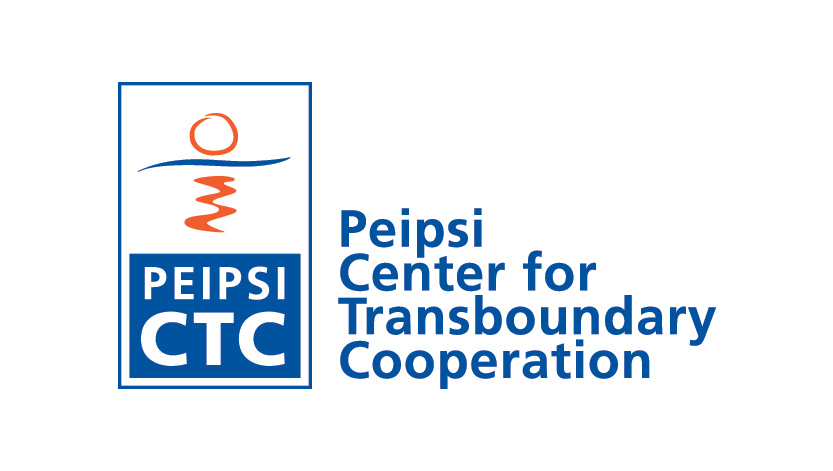14. September. EPICAH final seminar
On 14 September, the capital of Galicia, Santiago de Compostela, hosted a seminar organised by Eixo Atlántico to close the second phase of the EPICAH project, financed by Interreg Europe, which analysed how and why culture is a powerful engine for a new economic model for sustainable development.
In a hybrid format, the seminar was attended by the President of the Eixo Atlántico and Mayor of Braga, Ricardo Rio, who was recently Winner of the 2021 World Mayor Sustainability Award; the Mayor of Santiago de Compostela, Xosé Sánchez Bugallo; the Galician Regional Minister for Culture, Román Rodriguez; and the Director of Diario de Pontevedra and communications expert, Miguel Ángel Rodríguez. In addition, the seminar dedicated a panel to analyse the impressions and results of the project partners after its successful implementation; success, on the other hand, recognised by the representative of the Secretariat of the programme, also present at the closing table of the project.
One of the main messages of this debate was the importance of communication in economic recovery, in the sense that culture is a sector that benefits from the dissemination of information and marketing, so it is possible to conclude that the "consumption" of cultural and heritage elements depends on good communication.
Furthermore, questions were raised such as the progress of tourism policies at EU level, the main reasons for having an integrated policy, the main objectives of this policy, and its support instruments. All this taking into account the foundations of sustainability, innovation and inclusion.
It was also possible to hear the results of this project in the Region of West Macedonia, in the border area Estonia-Latvia, France-Italy, and Satu Mare (Romania). All of them, without exception, stressed the importance of the cooperation maintained during the project, the good practices transferred and implemented in their territories and, above all, their willingness to continue the cooperation between them beyond the duration of the project. This last fact undoubtedly reflects the importance of continuing and strengthening cooperation programmes.
The final table included the participation of Camille Milloir, who represented the Joint Secretariat of Interreg Europe, and spoke about the results of the programme in the 2014-2020 period, as well as the evolution and expectations in the preparation of the new programme for the 2021-2027 period.
Finally, the debate was closed by the Secretary General of the Eixo Atlántico, Xoan Vázquez Mao, who reiterated the spirit of cooperation between all the countries involved as well as the importance of culture and tourism in the economic recovery.
Read the presentation on Estonia-Latvian border region case study by Margit Säre, here
On 14 September, the capital of Galicia, Santiago de Compostela, hosted a seminar organised by Eixo Atlántico to close the second phase of the EPICAH project, financed by Interreg Europe, which analysed how and why culture is a powerful engine for a new economic model for sustainable development.
In a hybrid format, the seminar was attended by the President of the Eixo Atlántico and Mayor of Braga, Ricardo Rio, who was recently Winner of the 2021 World Mayor Sustainability Award; the Mayor of Santiago de Compostela, Xosé Sánchez Bugallo; the Galician Regional Minister for Culture, Román Rodriguez; and the Director of Diario de Pontevedra and communications expert, Miguel Ángel Rodríguez. In addition, the seminar dedicated a panel to analyse the impressions and results of the project partners after its successful implementation; success, on the other hand, recognised by the representative of the Secretariat of the programme, also present at the closing table of the project.
One of the main messages of this debate was the importance of communication in economic recovery, in the sense that culture is a sector that benefits from the dissemination of information and marketing, so it is possible to conclude that the "consumption" of cultural and heritage elements depends on good communication.
Furthermore, questions were raised such as the progress of tourism policies at EU level, the main reasons for having an integrated policy, the main objectives of this policy, and its support instruments. All this taking into account the foundations of sustainability, innovation and inclusion.
It was also possible to hear the results of this project in the Region of West Macedonia, in the border area Estonia-Latvia, France-Italy, and Satu Mare (Romania). All of them, without exception, stressed the importance of the cooperation maintained during the project, the good practices transferred and implemented in their territories and, above all, their willingness to continue the cooperation between them beyond the duration of the project. This last fact undoubtedly reflects the importance of continuing and strengthening cooperation programmes.
The final table included the participation of Camille Milloir, who represented the Joint Secretariat of Interreg Europe, and spoke about the results of the programme in the 2014-2020 period, as well as the evolution and expectations in the preparation of the new programme for the 2021-2027 period.
Finally, the debate was closed by the Secretary General of the Eixo Atlántico, Xoan Vázquez Mao, who reiterated the spirit of cooperation between all the countries involved as well as the importance of culture and tourism in the economic recovery.
Read the presentation on Estonia-Latvian border region case study by Margit Säre, here
